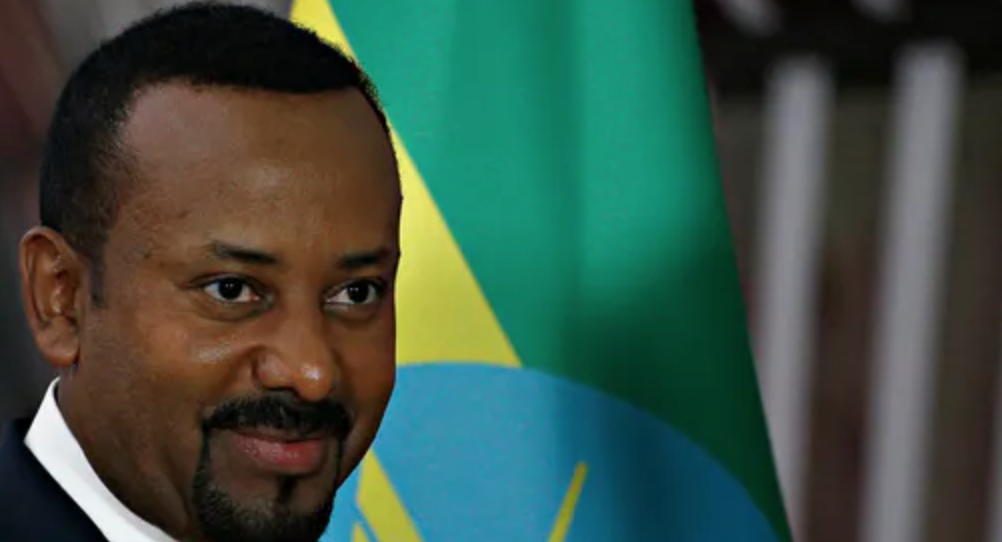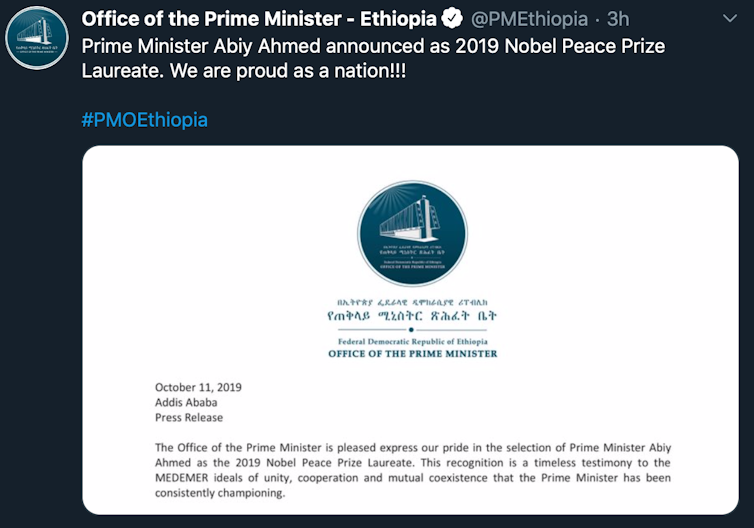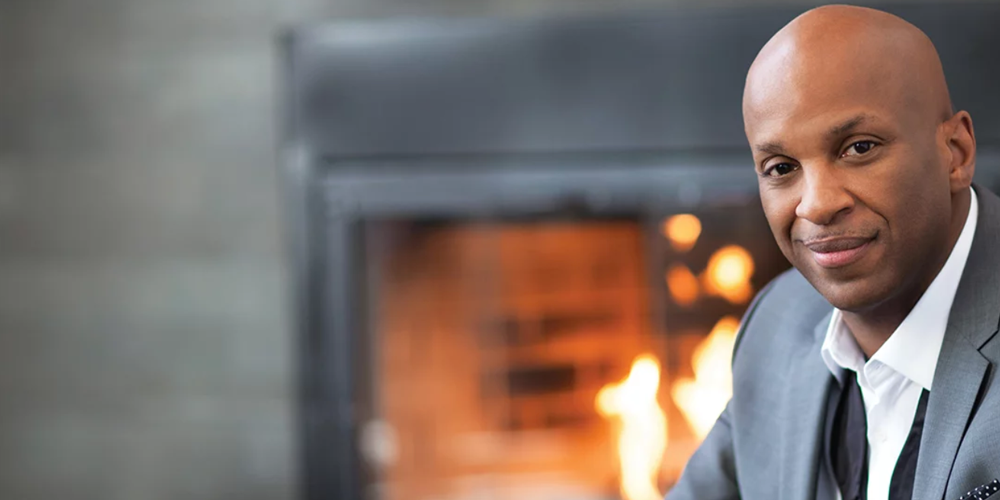
Almost 60, Donnie McClurkin says ‘I’m at a time now I sing when I want to’
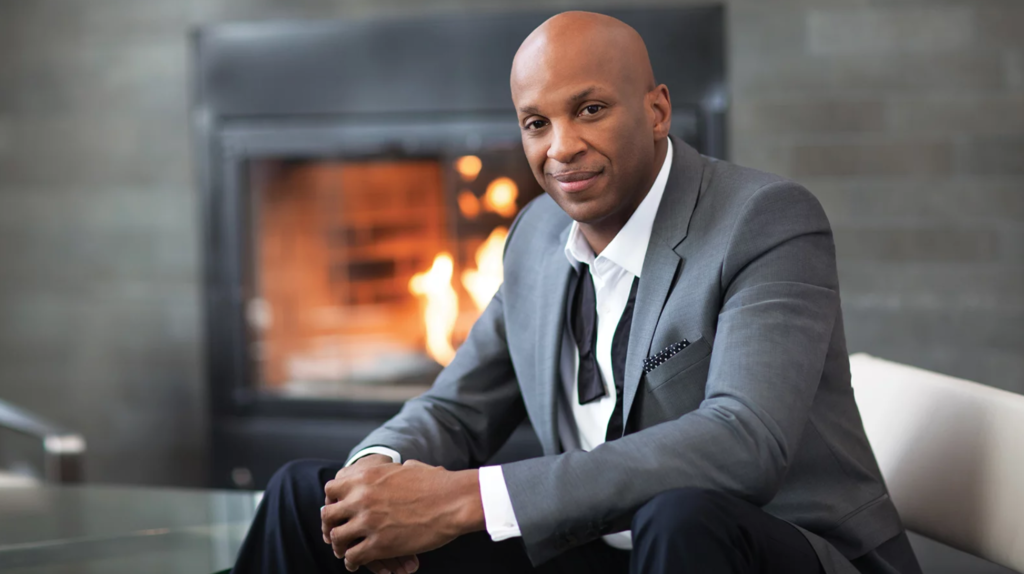
Gospel artist Donnie McClurkin. Photo by Christian Lantry
Two decades ago, gospel singer Donnie McClurkin stepped on a London stage to record his second album.
Now, he’s returning to the United Kingdom for 20th-anniversary concerts on Oct. 18 and 19 to reprise the music of his “Live in London and More” CD that featured songs like “That’s What I Believe” and “We Fall Down.”
The Grammy-winning pastor of Perfecting Faith Church, a Pentecostal congregation in Freeport, N.Y., says he latched onto the popularity of black gospel music that existed overseas long before his 1999 concert.
“People like Andrae Crouch and Edwin Hawkins and the like, they made the music global so it was all a byproduct of the global impact that American gospel had,” he said.
McClurkin, who will turn 60 on Nov. 9 and celebrate with a gospel-star-studded celebration a week later in Jamaica, N.Y., also hosts “The Donnie McClurkin Show.” He features a mixture of new and classic gospel music, interviews and inspirational messages that airs online and in some 60 markets from the U.S. to the United Kingdom to Africa.
He talked to Religion News Service about how Oprah Winfrey boosted his career, the status of his relationship with gospel artist Nicole C. Mullen and how retirement is a ways off.
The interview has been edited for length and clarity.
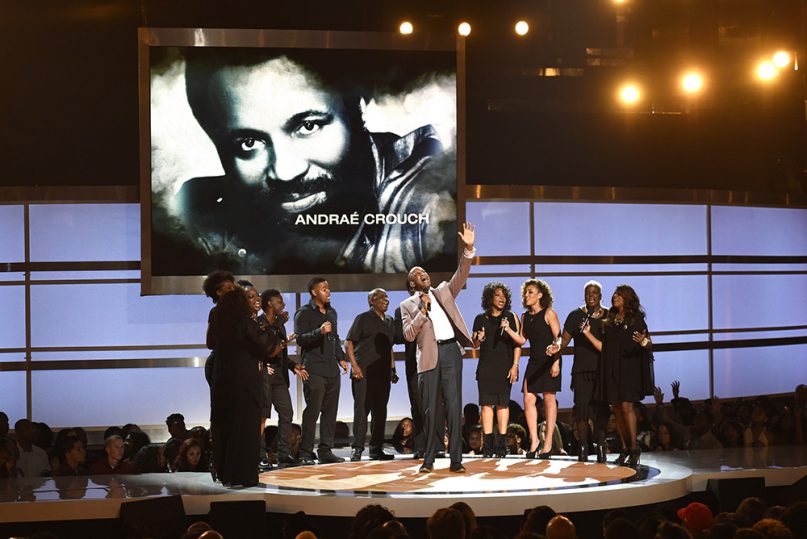
Donnie McClurkin presents an in memoriam tribute to Andrae Crouch at the BET Awards at the Microsoft Theater on June 28, 2015, in Los Angeles. (Photo by Chris Pizzello/Invision/AP)
Why did you decide to record an album in London 20 years ago, which some people might’ve considered an unusual move?
I decided to go to London, which was considered unusual by the record company itself, because of my mentor, the late great Andrae Crouch. He did a musical concert in 1978 in London. That became a landmark. And I always wanted to go to London from the time I knew where England was. And that was my prime opportunity because they gave me a blank check and said you just do an album however you want to do it.
There are certain celebrities who have helped you early in your career. Who are a couple of people that immediately come to mind and what difference did they make?
I was nominal, I was at B-level at best — and Oprah Winfrey got wind of the (1996) CD. She put me on her television show and held up the CD and said, “This is my favorite singer. This is my favorite project.” And we went from 30,000 to 300,000 in a month and then finally went platinum. Then there’s President George W. Bush and President Bill Clinton and those kinds of things happened and made it something larger than life.
What were the presidents’ roles? What did they do?
They brought me to their convention, to sing at the (Democratic National Convention), to sing at the (Republican National Convention), opened it up to thousands of people in a room, millions of people around the world and that’s where a lot of attention started coming in.
Is this London concert an unusual singing venture for you now, given you’re pastoring a church and you’re hosting a radio show, or do you continue to perform in concert on other occasions?
I’m over in London just about once a year in concert. Since “Live in London” 20 years ago, I’ve got a very strong base over there, very strong community in England and in Europe period, from Italy to Germany to Holland to the U.K.
And do you sing much in the U.S. as well?
I sing less in the U.S. than I do in Africa and Europe.
You won a Dove Award in 2017 for “The Journey (Live)” and you were recognized in 2001 with a Dove for “We Fall Down” from your “Live in London” album. As the Gospel Music Association’s Dove Awards celebrates its 50th award show next week, what are a couple of main changes you’ve seen in gospel music over that time?
In the GMA, I see a lot of inclusion. For a long time, it was very, very segregated. GMA was for the CCM (contemporary Christian music) and the white gospel singers. And in the last three or four years I’ve seen such an inclusion, integration of black gospel artists along with the contemporary white gospel artists.
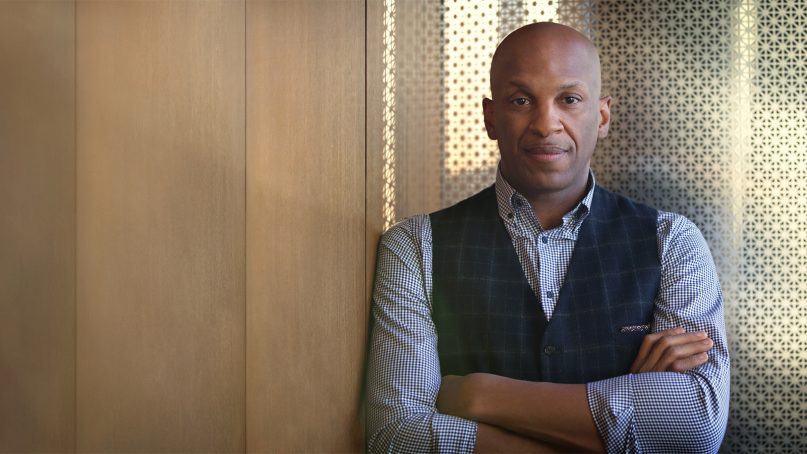
Gospel artist and pastor Donnie McClurkin. Photo by Christian Lantry
Do you mean that if you look at the show, if you look at the Dove Awards itself, that there is more integration?
The GMA as a whole, as an organization, not just the awards show but the organization itself. It’s grown and it’s matured and it’s let go of a lot of the institutionalized bias and has become inclusive of our music form, which is — and I probably will get in trouble — but our black music form is the strongest music form in gospel music. It’s what people gravitate to around the world, so “Oh Happy Day,” the whole of our repertoire. It’s been the most marketable. It’s been the most commercial. It’s been the most prominent. It’s apropos that at this point in time we are now sitting with equality at that table as well.
You have described yourself as a victim of childhood sex abuse and when you claimed you had overcome homosexuality, that prompted opposition from gay rights groups. How do you describe yourself now and are you involved in either so-called ex-gay ministries or initiatives that affirm LGBTQ people?
First of all, I’ve never been a part of any ex-gay anything. My past is just that: past. P-a-s-t. It’s gone. Who do I consider myself to be now? I consider myself to be Donnie. A wonderful, old man now — I never thought I’d be calling myself that — who is peaking 60 years old come next month and who has overcome a lot more than sexuality. But that’s been a great part of my life. It is something that I celebrate. I am a part of a church that embraces everybody. I am a pastor of a church that has hetero and homo in it as well. I believe in the love of God that reaches out to everybody, the love of God that is unconditional, the love of God that is not based on ethnicity, it’s not based on denomination, it’s not based on classification.
I believe in the transformative love that only comes through God and that’s what I preach. That’s what I live. That’s what I teach. I have a lot of LGBTQ friends in and out of the church. I’ve got a lot of people that appreciate what I’ve been through and they don’t judge me and I don’t judge them and that’s the way that this is supposed to work. It’s supposed to be a love that is real and genuine, that can accept people for who they are, even if you don’t agree with them.
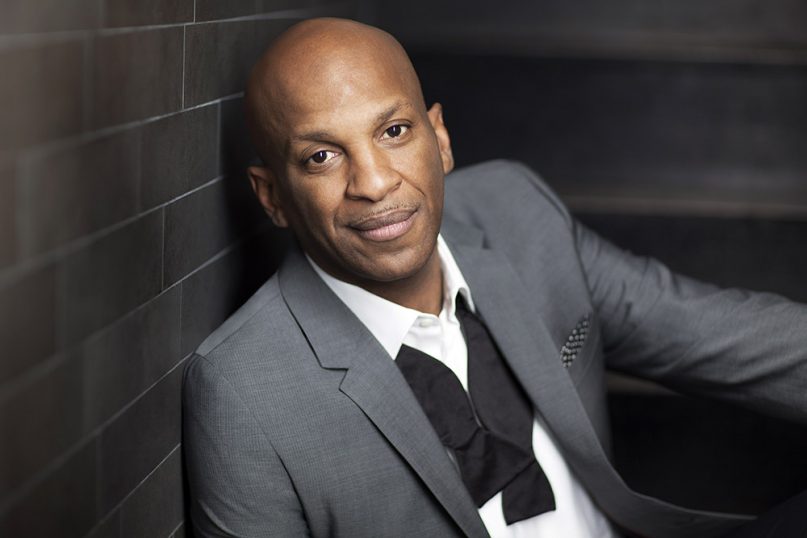
Gospel artist and pastor Donnie McClurkin. Photo by Christian Lantry
There were reports in recent years of you dating another gospel artist, Nicole C. Mullen. So where does that relationship stand now?
We are great friends. We are very, very great friends.
Is there any thought of retiring from singing or from preaching anytime soon?
In another 10 years (laughs) or maybe 20 years. Singing is something that’s marginal for me now. I do it when I want to do it. I do it when it’s convenient to do it, and I do it when it has a purpose, if it’s going to bring somebody to a greater understanding of who Christ is. I don’t do it just for the entertainment aspect of it any longer. I am selective in what I do. Aretha Franklin told me years ago, “There’s a time when you got to sing and there’s a time when you sing when you want to.” And that makes sense to me now. I’m at a time now I sing when I want to.

